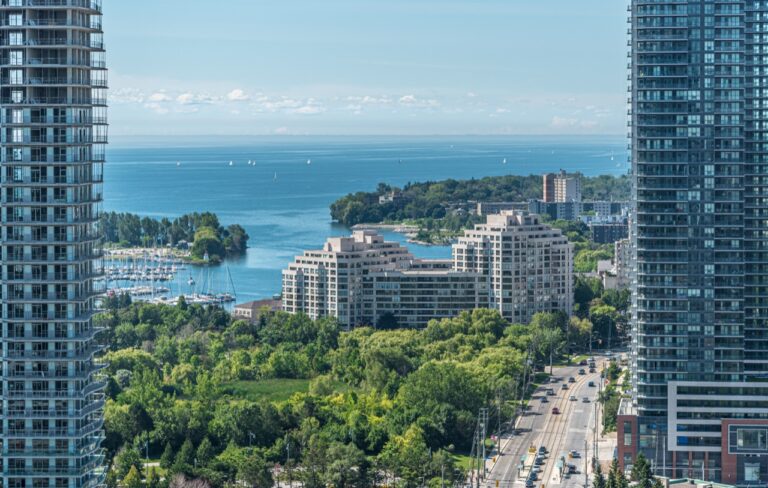Buying a condo can be a fantastic investment, but it comes with unique considerations that differ from purchasing a house. A thorough condo inspection is essential to ensure you’re making a smart financial decision. While a home inspection typically focuses on the property itself, a condo inspection involves assessing not just your unit but also the building’s overall condition and financial health.
Here are seven critical things every homebuyer should look for during a condo inspection to avoid unexpected costs and headaches down the line.
1. The Reserve Fund: Is It Healthy?
One of the most important aspects of a condo’s financial health is its reserve fund. The reserve fund is a savings account used for major repairs and replacements, such as roofing, HVAC systems, elevators, and exterior maintenance.
What to Check:
- Ask for the latest reserve fund study report.
- Check if the fund is adequately funded based on the building’s age and upcoming maintenance needs.
- Ensure that contributions to the reserve fund are being made regularly.
Red Flag: If the reserve fund is underfunded, you could face hefty special assessments in the future to cover major repairs.
Pro Tip: A healthy reserve fund is a sign of a well-managed condo corporation. Don’t overlook this crucial detail.
2. Special Assessments: Are They on the Horizon?
A special assessment is an extra fee condo owners must pay to cover unexpected expenses or major repairs not covered by the reserve fund. These can be a financial burden if you’re not prepared.
What to Check:
- Ask if any special assessments have been issued in the past five years.
- Inquire if any upcoming special assessments are anticipated.
Red Flag: Frequent or large special assessments can indicate poor planning or inadequate reserve fund management.
Pro Tip: Factor in the potential for special assessments when budgeting for your condo purchase.
3. Building Maintenance and Common Areas: What’s the Condition?
The state of the building and common areas is a reflection of how well the condo corporation maintains the property. Poor maintenance can lead to higher fees and reduced property values.
What to Check:
- Inspect common areas like hallways, lobbies, elevators, and parking garages.
- Look for signs of wear and tear, such as peeling paint, broken tiles, or malfunctioning elevators.
Red Flag: Neglected common areas could signal future costly repairs and rising condo fees.
Pro Tip: A well-maintained building indicates a proactive condo board that takes care of the property.
4. Condo Fees: Are They Reasonable?
Condo fees are mandatory monthly payments that cover building maintenance, utilities, and contributions to the reserve fund. High or rapidly increasing fees can impact your overall budget.
What to Check:
- Review the current condo fees and how they’ve changed over the past few years.
- Ask what the fees cover and if utilities for your unit are included.
Red Flag: Significant increases in condo fees without clear justification can be a warning sign of poor financial management.
Pro Tip: Compare fees with similar condos in the area to ensure they’re reasonable.
5. Building History and Age: How Old Is It?
The age of the building plays a significant role in the likelihood of upcoming repairs. Older buildings may require more maintenance, while newer buildings might have modern features but could still have hidden issues.
What to Check:
- Find out when the building was constructed and if any major renovations have been done.
- Ask if there have been any structural issues in the past.
Red Flag: Older buildings with no recent upgrades could be due for costly repairs.
Pro Tip: A building that has undergone recent renovations or upgrades is often a safer bet.
6. Rules and Regulations: Are They a Good Fit for You?
Every condo corporation has its own set of rules and regulations that owners must follow. These can affect everything from pet ownership to what you can do with your unit.
What to Check:
- Ask for a copy of the condo’s rules and bylaws.
- Review any restrictions on pets, rentals, renovations, or noise levels.
Red Flag: Strict or unreasonable rules can impact your lifestyle and enjoyment of the property.
Pro Tip: Make sure the condo’s rules align with your needs and lifestyle before committing.
7. Insurance Coverage: Are You Properly Protected?
Condo insurance can be tricky, as it involves both personal coverage for your unit and the building’s master insurance policy. Understanding what’s covered is essential to avoid gaps in coverage.
What to Check:
- Ask for a copy of the building’s master insurance policy.
- Ensure your personal insurance policy covers any gaps in the building’s coverage.
Red Flag: Inadequate building insurance can leave you vulnerable to financial loss in the event of damage.
Pro Tip: Work with an insurance professional to ensure you have comprehensive coverage for your condo.
Final Thoughts
A thorough condo inspection is a crucial step in the buying process. By paying attention to these key areas, you can avoid unexpected costs and make an informed decision about your purchase.
Thinking about buying a condo? Need advice on financing or refinancing your mortgage? Visit our contact page to get in touch—we’re here to help you make smart financial decisions for your future!
